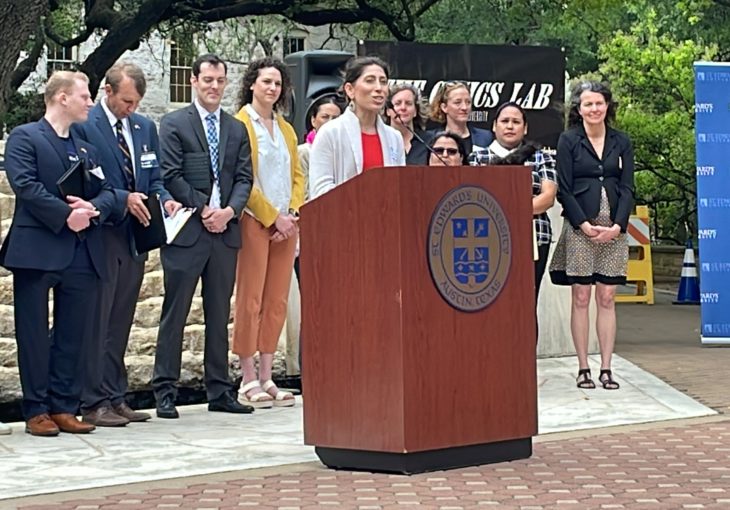AUSTIN, Texas –Speaking from the St. Edward’s University campus in South Austin, Mayor Steve Adler, City Council Members Vanessa Fuentes and Sabino “Pio” Renteria, along with local non-profit organizations including the American Heart Association, are working to remove food access barriers, announced two new city initiatives in the
continued fight against hunger and access to healthy food.
The two initiatives are results of the student research and work, including declaring April 21 as Austin Food Insecurity Awareness Day and a resolution announcing a partnership between Austin public transit and the City of Austin to develop maps, public announcements on public transit lines for healthy food location stops, and adding bus routes to connect residents to healthy food locations.
Austin Mayor Steve Adler, speaking at the event, declared that “We are a city of tremendous wealth and opportunity, but we are also a city with residents facing poverty and inequality. Families struggling to find affordable housing, access to quality healthcare, and food are challenges that require all of us to solve together. These two initiatives can help us unite as a community, recognize the challenges we must solve, and put our resources towards solving them.”
Austin includes 33 different low-income areas, classified by the USDA as food deserts, in which at least 500 people or 33% of its population live at least a half mile from a grocery store. The Civics Lab at St. Edward’s research uncovered an alarming pattern with areas of food insecurity primarily concentrated east of the I-35 corridor, where a greater percentage of Austin residents are low-income and communities of color. The research also suggests that communities that lack access to healthy food suffer from far higher rates of health conditions like heart disease, cancer, and diabetes.
City Council Member Renteria, who represents part of South Austin, introduced the proclamation in city council. “Improving access to healthy, nutritional food such as fresh produce is crucial to combatting the health disparities that food insecurity has inflicted upon our community. The fact that nearly all the U.S. census tracts classified as food deserts are located east of I-35 demonstrates how this issue disproportionately impacts low-income and minority neighborhoods,” said Renteria.
Catalina Berry, Community Impact Director with the American Heart Association, said that “nutrition security is an important tool for equity, as it builds mental and physical health and well-being, particularly important for those who have been marginalized and have great societal obstacles to overcome. The American Heart Association continues to address these issues in Central Texas through collaborations with organizations to provide more access by creating markers of healthy food stops along Cap Metro routes and providing nutrition screenings with the Boys & Girls Clubs. Additionally, AHA Austin is working with councilmembers and civic leaders to reach the community where they live to ensure that everyone can lead a longer, healthier life.”
